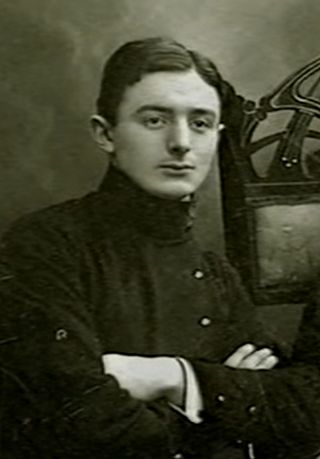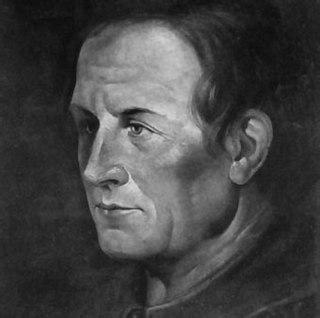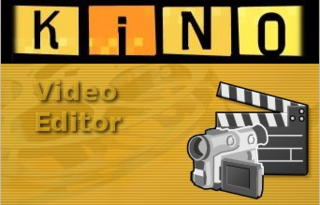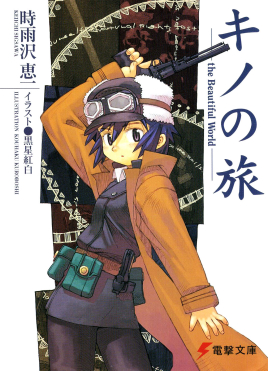
Dziga Vertov was a Soviet pioneer documentary film and newsreel director, as well as a cinema theorist. His filming practices and theories influenced the cinéma vérité style of documentary movie-making and the Dziga Vertov Group, a radical film-making cooperative which was active from 1968 to 1972. He was a member of the Kinoks collective, with Elizaveta Svilova and Mikhail Kaufman.

Barren County is a county located in the south-central portion of the U.S. state of Kentucky. As of the 2020 census, the population was 44,485. Its county seat is Glasgow. The county was founded on December 20, 1798, from parts of Warren and Green Counties. It was named for the Barrens, meadowlands that cover the northern third, though actually the soil is fertile. Barren County is part of the Glasgow, KY Micropolitan Statistical Area, which is also included in the Bowling Green-Glasgow, KY Combined Statistical Area. In 2007 Barren County was named the "Best Place to Live in Rural America" by Progressive Farmer Magazine.

The Pearl is a novella by the American author John Steinbeck. The story, first published in 1947, follows a pearl diver, Kino, and explores man’s purpose as well as greed, defiance of societal norms, and evil. Steinbeck's inspiration was a Mexican folk tale from La Paz, Baja California Sur, Mexico, which he had heard in a visit to the formerly pearl-rich region in 1940.
Kino Lorber is an international film distribution company based in New York City. Founded in 1977, it was originally known as Kino International until it was acquired by and merged into Lorber HT Digital in 2009. It specializes in art house films, such as documentary films, classic and rarely seen films from earlier periods in the history of cinema, and world cinema. In addition to theatrical distribution, Kino Lorber releases films in the home entertainment market and has its own streaming services for its digital library.

Eusebio Francisco Kino, SJ, often referred to as Father Kino, was a Tyrolean Jesuit, missionary, geographer, explorer, cartographer, mathematician and astronomer born in the Territory of the Bishopric of Trent, then part of a partially German-speaking area of the Holy Roman Empire of the German Nation. For the last 24 years of his life he worked in the region then known as the Pimería Alta, modern-day Sonora in Mexico and southern Arizona in the United States. He explored the region and worked with the indigenous Native American population, including primarily the Tohono O'Odham, Sobaipuri and other Upper Piman groups. He proved that the Baja California Territory was not an island but a peninsula by leading an overland expedition there. By the time of his death he had established 24 missions and visitas.

Kino is a discontinued free software GTK+-based video editing software application for Linux and other Unix-like operating systems. The development of Kino was started at the end of 2000 by Dan Dennedy and Arne Schirmacher. The project's aim was: "Easy and reliable DV editing for the Linux desktop with export to many usable formats." The program supported many basic and detailed audio/video editing and assembling tasks.

Kino Sports Complex is a multiple-use sports complex in Tucson, Arizona. The Arizona Diamondbacks and Chicago White Sox formerly utilized the complex's main ballpark, Kino Veterans Memorial Stadium, for Cactus League games each March and had their minor league complexes on-site. The ballpark was also home to the Tucson Sidewinders of the Pacific Coast League for the team's last decade in Tucson, running from the stadium's 1998 opening season to the 2008 season. The ballpark was a temporary home (2011–2013) to the Tucson Padres of the Pacific Coast League during the team's relocation to El Paso, Texas. It is also the regular season home of the Pecos League's Tucson Saguaros baseball team since 2016. It seats 11,500 fans, and hosts concerts in addition to its primary function as a baseball park.
Kino was a Soviet rock band formed in Leningrad in 1982. The band was co-founded and headed by Viktor Tsoi, who wrote the music and lyrics for almost all of the band's songs. Over the course of eight years, Kino released over 90 songs spanning over seven studio albums, as well as releasing a few compilations and live albums. The band's music was also widely circulated in the form of bootleg recordings through the underground magnitizdat distribution scene. Viktor Tsoi died in a car accident in 1990. Shortly after his death, the band broke up after releasing their final album, consisting of songs that Tsoi and the group were working on in the months before his death.

La perla is a 1947 Mexican-American film directed by Emilio Fernández. It is based on the 1947 novella The Pearl by John Steinbeck, who also co-wrote the screenplay.

Magdalena de Kino is a city, part of the surrounding municipality of the same name, located in the Mexican state of Sonora covering approximately 560 square miles. According to the 2005 census, the city's population was 23,101, and the municipality's population was 25,500. Magdalena de Kino is in the northern section of Sonora 50 miles from the Mexico-U.S. border. To the north the municipality abuts Nogales; to the south, the municipality of Santa Ana; to the east, Ímuris and Cucurpe; and to the west, the municipalities of Tubutama and Sáric. Its main sectors include San Ignacio, San Isidro, Tacicuri, and Sásabe. The city was named after the pioneer Roman Catholic missionary and explorer, Father Eusebio Francisco Kino, who worked in the area, as well as in the present-day US state of Arizona.

Kino is a botanical gum produced by various trees and other plants, particularly bloodwood species of eucalypts and Pterocarpus, in reaction to mechanical damage, and which can be tapped by incisions made in the trunk or stalk. Many Eucalyptus, Angophora and Corymbia species are commonly referred to as 'bloodwoods', as the kino usually oozes out a very dark red colour. Kino flow in angiosperms contrasts with resin flow in conifers. The word kino is of Indian origin. In Australia, "red gum" is a term for kino from bloodwood trees and red acaroid resin from Xanthorrhoea spp.

Ale Kino+ is a Polish television channel owned and operated by Canal+. It is available on the networks of cable television and the digital platform Cyfra+ since 16 April 1999.

Kino's Journey —the Beautiful World—, shortened to Kino's Journey, is a Japanese light novel series written by Keiichi Sigsawa, with illustrations by Kouhaku Kuroboshi. The series follows a traveler named Kino and her talking motorcycle named Hermes, as they explore countries with unique customs and people around a mysterious world, only spending three days at each location. The series originally started serialization in volume five of MediaWorks' now-defunct light novel magazine Dengeki hp on March 17, 2000. The first volume of the series was published on July 10, 2000 by ASCII Media Works under their Dengeki Bunko publishing imprint. As of November 2020, 23 volumes have been published.

Tahu sumedang or Tahu bunkeng is a Sundanese deep-fried tofu from Sumedang, West Java, Indonesia. It was first made by a Chinese Indonesian named Ong Kino. It has some different characteristic from other tofu.
2012 Desert Diamond Cup is a soccer exhibition featuring four soccer teams from Major League Soccer, held between February 22 – March 3, 2012. The preseason tournament was played at the Kino Sports Complex 11,000 seat main stadium in Tucson, Arizona. This is the 2nd annual Desert Diamond Cup. New York Red Bulls and Sporting Kansas City of Major League Soccer participated in the first tournament in March 2011.
Kinopoisk is a Russian online database of information related to films, TV shows including cast, production team, biographies, plot summaries, ratings, and reviews. Since 2018 also a subscription video on demand streaming service with several thousand films, TV series, cartoons and including premieres and exclusive ones, has also been available.
Kino MacGregor is an American Ashtanga Yoga teacher, author, entrepreneur, influencer, inspirational speaker, and video producer. When she was 29, K. Pattabhi Jois certified her to teach Ashtanga Yoga.














